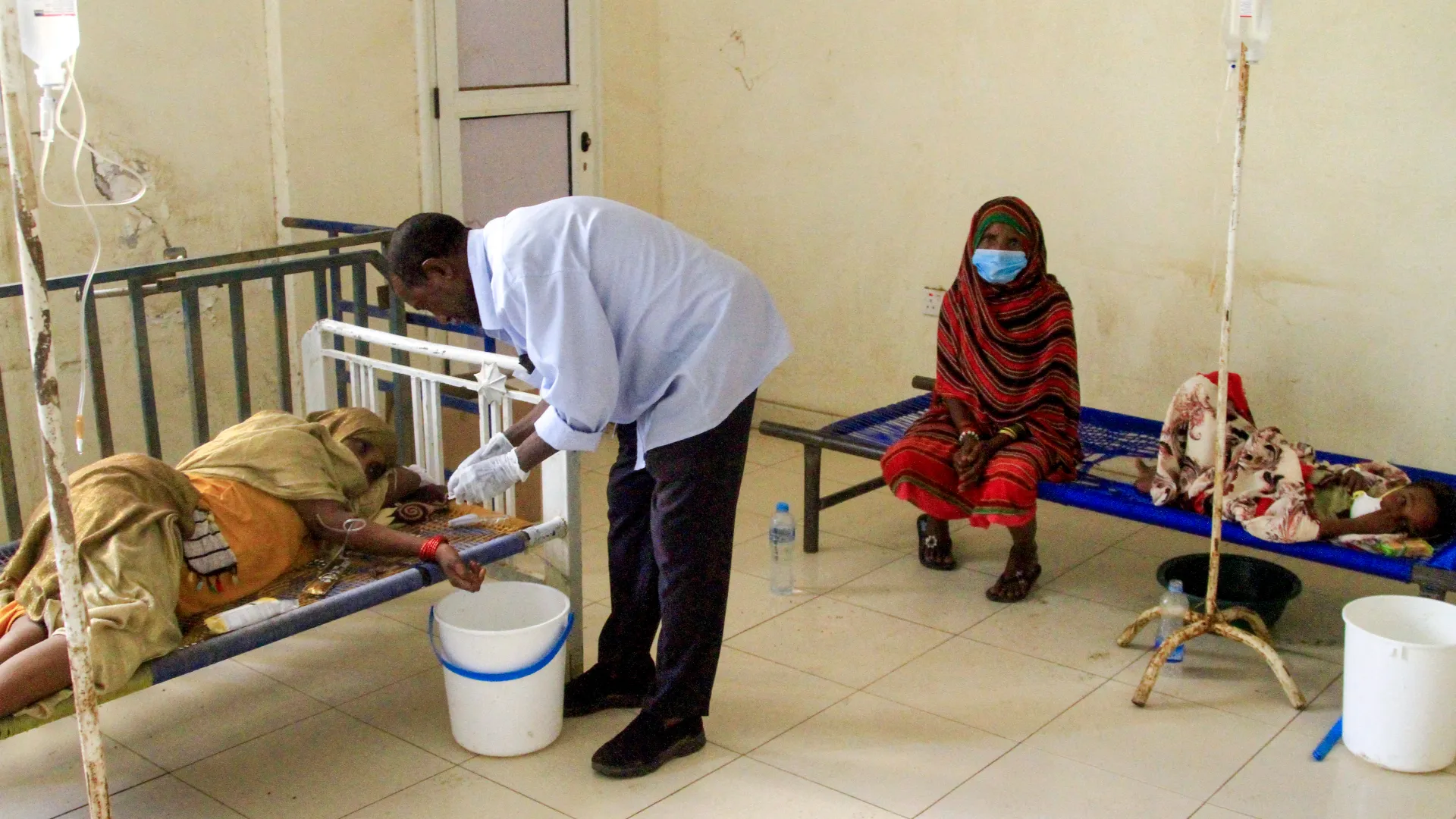
Sudan Faces Health Disaster as Cholera Epidemic Spreads
Sudan’s cholera outbreak is escalating as conflict severely hampers healthcare and access to clean water, with aid organizations cautioning about a looming catastrophe.
In Sudan, specifically in the White Nile region, Kosti is currently facing a cholera outbreak. The MSF Environmental Health team is actively engaged in the triage section at the Kosti Cholera Treatment Center.
Sudan is on the brink of a public health crisis as a severe cholera outbreak spreads swiftly throughout the nation, worsened by the civil war that has persisted for three years. The International Rescue Committee (IRC) has issued a serious warning, emphasizing the increasing impact on civilians who have already suffered greatly due to conflict.
In a span of one week, Sudan’s Health Ministry has reported 172 deaths related to cholera, highlighting that Khartoum state is the most severely affected. The ministry communicated the figures through Facebook, highlighting the worsening crisis.
The outbreak of the disease has been associated with significant interruptions in essential services. Sudanese media, referencing local doctors, report that drone attacks have caused extensive power outages at water purification stations, compelling communities to depend on contaminated water sources.
“The civil war is driving the resurgence of cholera,” stated Eatizaz Yousif, IRC’s country director for Sudan. The organization highlighted the critically low vaccine coverage and a decreasing supply of essential medical resources.
Medical charity Doctors Without Borders (MSF) has reiterated the concerns, indicating “thousands of suspected cholera cases” in Khartoum since mid-April. Slaymen Ammar, MSF’s medical coordinator in Sudan, emphasized that the conflict has severely damaged healthcare infrastructure, rendering medical care either prohibitively expensive or completely inaccessible.
“Due to the fighting, many of the remaining health workers had no choice but to leave,” Ammar stated. “The limited health facilities that remain operational are inundated.”
Last week, MSF reported that Khartoum experienced up to 500 cholera cases in just one day. The outbreak has extended to both the northern and southern regions of the country, according to reports from AFP.
Cholera, a disease transmitted through water, frequently presents as mild or without symptoms. In severe instances, it may lead to life-threatening diarrhoea, necessitating immediate treatment with antibiotics and intravenous fluids, as stated by the World Health Organisation.
The cholera outbreak exacerbates an already critical humanitarian crisis. Since the outbreak of war between Sudan’s army and the paramilitary Rapid Support Forces (RSF), over 150,000 people have lost their lives, and millions have been forced to flee their homes. The United Nations has characterized the situation as the most severe humanitarian crisis globally.
As the conflict shows no signs of resolution and essential infrastructure deteriorates, humanitarian organizations are urgently calling for international intervention to avert additional loss of life.
All Categories
Recent Posts
Tags
+13162306000
zoneyetu@yahoo.com



